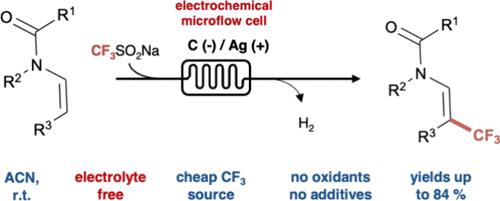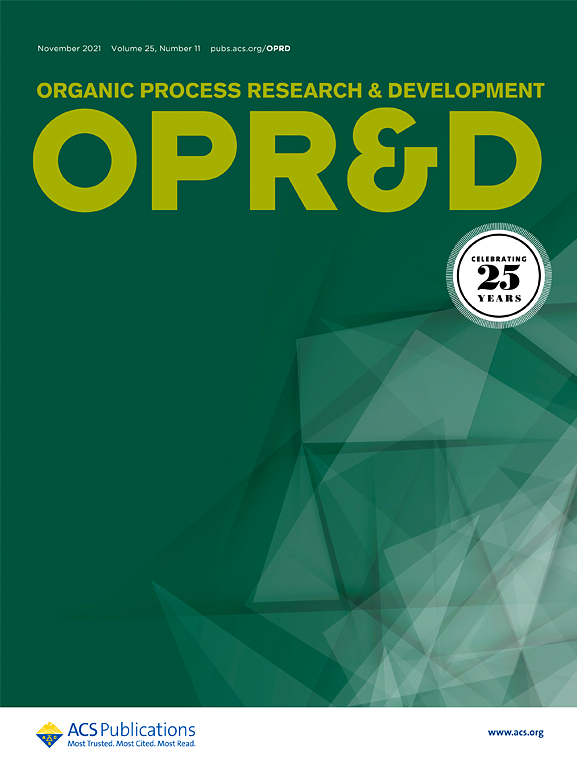微流条件下的烯酰胺三氟甲基化电化学反应
IF 3.1
3区 化学
Q2 CHEMISTRY, APPLIED
引用次数: 0
摘要
开发可持续的烯酰胺三氟甲基化技术对制药业具有重大意义。在此,我们展示了一种在微流池中使用 Langlois 试剂的可持续直接电化学三氟甲基化方法,该方法在温和条件下无需支持电解质、氧化剂或任何添加剂。该方法可用于各种基质,产率高达 84%。此外,批量工艺的产率明显较低(22%),凸显了微流电池的效率。本文章由计算机程序翻译,如有差异,请以英文原文为准。

Electrochemical Trifluoromethylation of Enamides under Microflow Conditions
The development of sustainable trifluoromethylations of enamides is of great interest to the pharmaceutical industry. Herein, we demonstrate a sustainable direct electrochemical trifluoromethylation method in a microflow cell, using Langlois reagent, without the need for a supporting electrolyte, oxidants, or any additive under mild conditions. This method can be applied to various substrates with a yield of up to 84%. Additionally, the batch process yielded significantly less (22%), highlighting the microflow cell’s efficiency.
求助全文
通过发布文献求助,成功后即可免费获取论文全文。
去求助
来源期刊
CiteScore
6.90
自引率
14.70%
发文量
251
审稿时长
2 months
期刊介绍:
The journal Organic Process Research & Development serves as a communication tool between industrial chemists and chemists working in universities and research institutes. As such, it reports original work from the broad field of industrial process chemistry but also presents academic results that are relevant, or potentially relevant, to industrial applications. Process chemistry is the science that enables the safe, environmentally benign and ultimately economical manufacturing of organic compounds that are required in larger amounts to help address the needs of society. Consequently, the Journal encompasses every aspect of organic chemistry, including all aspects of catalysis, synthetic methodology development and synthetic strategy exploration, but also includes aspects from analytical and solid-state chemistry and chemical engineering, such as work-up tools,process safety, or flow-chemistry. The goal of development and optimization of chemical reactions and processes is their transfer to a larger scale; original work describing such studies and the actual implementation on scale is highly relevant to the journal. However, studies on new developments from either industry, research institutes or academia that have not yet been demonstrated on scale, but where an industrial utility can be expected and where the study has addressed important prerequisites for a scale-up and has given confidence into the reliability and practicality of the chemistry, also serve the mission of OPR&D as a communication tool between the different contributors to the field.

 求助内容:
求助内容: 应助结果提醒方式:
应助结果提醒方式:


